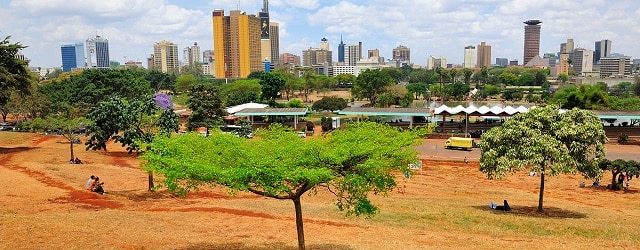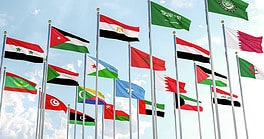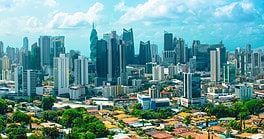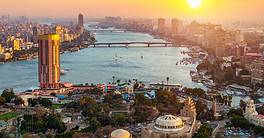Financial services is fueling expansion, but fiscal woes and terrorism are keeping foreign investors at bay.

|
KENYA: VITAL STATISTICS |
|---|
|
Location: East Africa |
|
Neighbors: Ethiopia, Somalia, Uganda, Tanzania |
|
Capital city: Nairobi |
|
Population (2018): 51,635,256 |
|
Official language: English |
|
GDP per capita (2018): US$1710.50 |
|
GDP growth (2018): 6.3% |
|
Inflation (2018): 4.7% |
|
Currency: Shilling |
|
Investment promotion agency: Kenya Investment Authority |
|
Investment incentives available: Tax incentives; export processing zones |
|
Ease of Doing Business rank (2020): 56 (conditions vary by county) |
|
Corruption Perceptions Index rank (2019): 137 |
|
Political risks: Squabbling over finances at federal level may; Maritime boundary dispute with Somalia; Potential for tumult before the next election; Deceleration in China |
|
Security risks: Drug trafficking |
|
PROS |
|---|
|
Track record in attracting deals in 2019 |
|
Exports generally to Europe, not troubled countries in the region |
|
CONS |
|---|
|
Ethnic hostilities |
|
Armed crime |
|
Water pollution / Degradation of water |
|
Deforestation |
|
Soil erosion |
|
Poaching |
|
Sources: Al Jazeera, BBC News, Bloomberg Capital News, Daily Nation, The Commonwealth, Government of Canada, Government of the United Kingdon, The International Monetary Fund, Reuters, Transparency International, United States State Department, The World Bank |
|
For more information, check out Global Finance‘s Kenya Economic Report data page. |
With the services sector leading the way, Kenya enjoyed steady growth, producing year-over-year increases in GDP for most of the past decade. That should continue at least for the short and medium terms, according to Fitch Ratings, which projects 6% GDP growth in 2020 with a slight deceleration to 5.8% in 2021.
In 2019, services accounted for 42.67% of GDP, while industry contributed 16.39% and agriculture accounted for 34.9%.
“The services sector is dominated by tourism and financial services,” says Corti Paul Lakuma, macroeconomist and research fellow at Uganda’s Economic Policy Research Center. Lakuma talked to Global Finance from Kampala, Uganda. Financial services is driven by retail transactions and insurance, while tourism benefits from Kenya’s international reputation as a magnet for viewing “the big five” animals—lions, rhinos, leopards, elephants and buffalo—and the presence of major hotel chains like Marriot and Hilton.
Tea brings in roughly $1 billion annually, followed by coffee, flowers and plants. Kenya’s other economic strengths include a large economy and memberships in the Common Market for Eastern and Southern Africa and the East African Community.
Yet looking more closely, the picture is less certain. The budget deficit remains high for 2019-2020, according to an analysis by Compagnie Française d’Assurance pour le Commerce Extérieur (Coface). It expects interest payments—which totaled approximately 22% of government revenue in 2019—to drive up expenditures while inefficient collections keep revenues limited.
Fitch gives Kenya’s debt a B+ rating and suggests the economy will slow in 2022, driven by uncertain election-year politics, security problems and an escalating locust infestation, notes Jermaine Leonard, director of Fitch’s Middle East and Africa Sovereign team.
One top concern is the difficulty in obtaining financing to improve infrastructure. “Part of the problem is that the kind of investor who might invest in infrastructure projects in other parts of the world doesn’t generally like to have that kind of direct project exposure in Kenya,” says Leonard. That leaves it to the government to finance infrastructure, leading to higher state borrowing and debt. Parliament balked at the president’s budget for the upcoming fiscal year, viewing it as unrealistic and damaging.
Terrorism puts up another hurdle. The Somalian terror group Al-Shabaab carried out five deadly attacks in Kenya during the first two weeks of January, the latest in a long series of strikes in retaliation for Nairobi sending its troops into Somalia in 2011. Al-Shabaab’s ability to execute attacks in both Kenya and Somalia suggests that government attempts to neutralize it failed and the regional powers’ counterterrorism policies are not working. The fact that Al-Shabaab operates in small cells complicates government efforts to negotiate, says Lakuma.
Not surprisingly, the governments of the US, the UK and Canada have warned their citizens against traveling to specified areas, damping enthusiasm for any increase in FDI.



